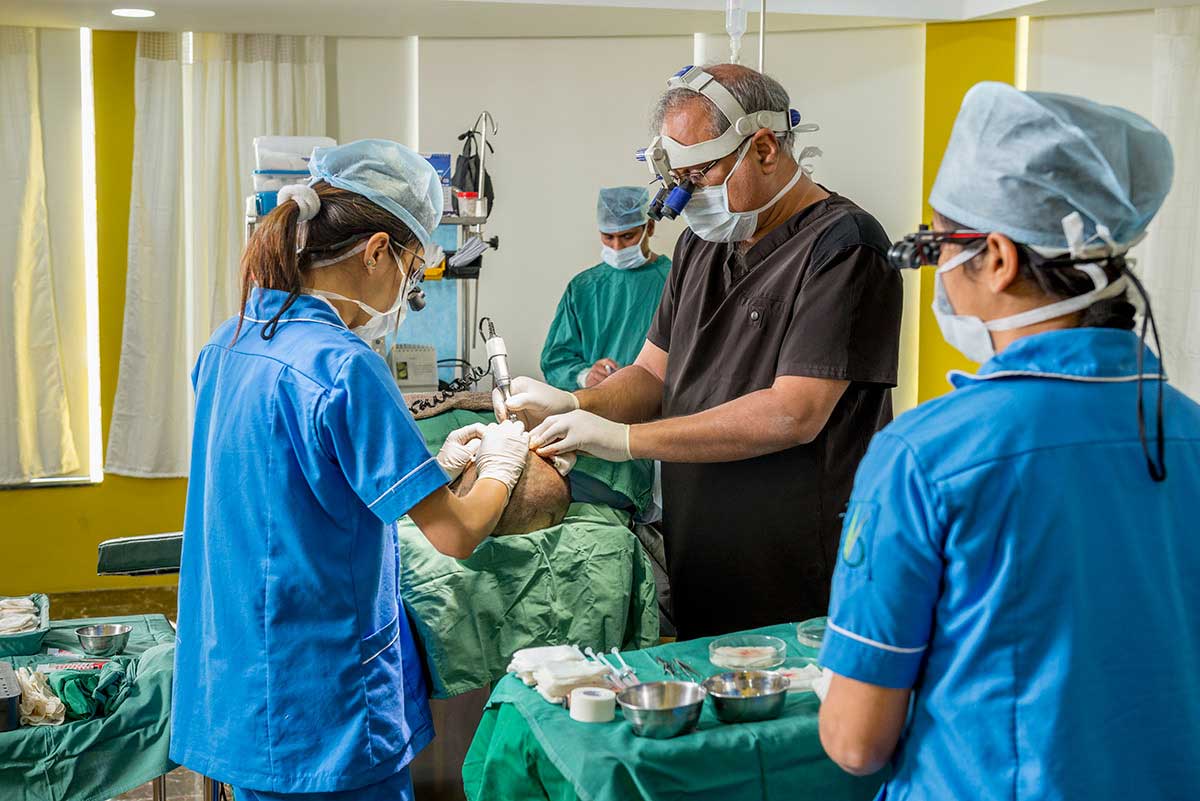The Cost of a Poor Hair Transplant: A Cautionary Tale
Watch: https://youtu.be/_yV6_Lvq_O8?si=jTp1rq2YCe3aI36M
A Decision That Changed Everything
Imagine being 22, full of hope, and believing that a hair transplant will solve all your problems. Now fast-forward to 35. The excitement has faded, and the reality is brutal. That’s exactly what happened to Sameer, who underwent a transplant at a clinic in his hometown a decade ago.
Today, he is left with irreversible damage: poor hair growth, a ravaged donor area, and no viable options for repair. This is the true cost of a bad hair transplant—a price far beyond money.
More Than Just Money: The Hidden Costs
A bad hair transplant does not just cost you financially. It steals your confidence, future options, and peace of mind. Here’s why:
The transplanted hair never grew properly—patchy, thin, and unnatural.
His donor area is ruined—overharvested to the point of looking like a battlefield.
Further hair loss made it worse—islands of hair left behind while the rest thinned out.
No easy fixes—wigs and hairpieces won’t sit right, and even scalp micropigmentation (SMP) won’t fully cover the damage.
Sameer burnt his bridges with one bad decision. The lesson? A hair transplant is not a race—it’s a strategy. If done wrong, there’s no turning back.
When You Should NOT Get a Hair Transplant
A great hair transplant requires timing, planning, and ethical medical advice.
If you fall into any of these categories, hitting pause might be your best decision yet.
1. If You Are Too Young (<25 Years Old)Hair loss is progressive, meaning your pattern of baldness will evolve over time. Getting a transplant too early often leads to:
An unnatural hairline as hair loss continues.
Donor hair depletion before you even need it.
A patchy, scattered look as native hair sheds around the transplanted grafts.2. If Your Hair Loss Is Still Progressing RapidlyIf your hair is actively shedding, a transplant will not stop the process. Instead, it can create islands of hair surrounded by bald patches. Before surgery, stabilize hair loss for at least 4 months with medical treatments and lifestyle modifications.3. If You Have a Weak Donor AreaDonor hair is a finite resource. Overharvesting, as seen in this case study, can lead to:
A thinned-out, scarred donor zone.
No hair left for future procedures.
A permanently unnatural look.4. If You Have Unrealistic ExpectationsA transplant merely redistributes existing hair—it does not create new hair. If you expect:
❌ Full teenage-like density
❌ Zero maintenance post-surgery
❌ A one-time solution with no future hair loss
You are setting yourself up for disappointment.5. If You Are Choosing a Clinic Based on Cost AloneA cheap transplant can cost you your future. Red flags include:
Clinics offering massive graft numbers at low prices.
No long-term planning or pre-operative counseling.
Rushed procedures in “hair mills” handling multiple patients a day.6. If You Are Not Emotionally ReadyA transplant is a permanent, life-changing decision. It should NOT be a reaction to:
A recent breakup, job stress, or peer pressure.
Family or societal expectations.
Body dysmorphic disorder (BDD), which can lead to dissatisfaction with any result.The Final Price: A Life of RegretSameer’s case is a stark warning. His scalp is scarred, overharvested, and unnatural. He has few options left—SMP or corrective surgery may help, but they cannot undo the years of damage.
This is why an ethical surgeon sometimes says NO. At my clinic, Dr. Akanxa Bhatti and I accept only 6 out of 10 cases. Not everyone is a candidate for a hair transplant. And that’s okay.Think Before You ActBefore you even consider a transplant, ask yourself these six questions:✅ Am I over 25 with a stable hair loss pattern?
✅ Have I tried medical treatments before opting for surgery?
✅ Is my donor area strong enough for future procedures?
✅ Do I have realistic expectations?
✅ Am I choosing a surgeon based on expertise, not price?
✅ Am I emotionally prepared for the commitment?If you answer NO to any of these, reconsider your decision. A bad transplant does not just cost money—it can cost you everything.

Choose wisely.
Your future self will thank you for it.


